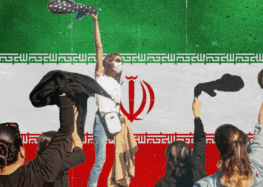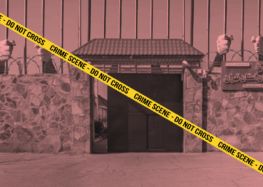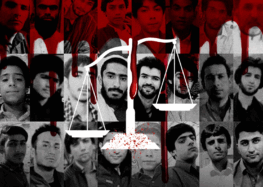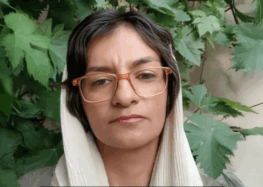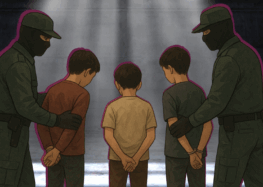Iran Forcibly Deports Nearly 600,000 Afghan Migrants Amid Post-War Crackdown
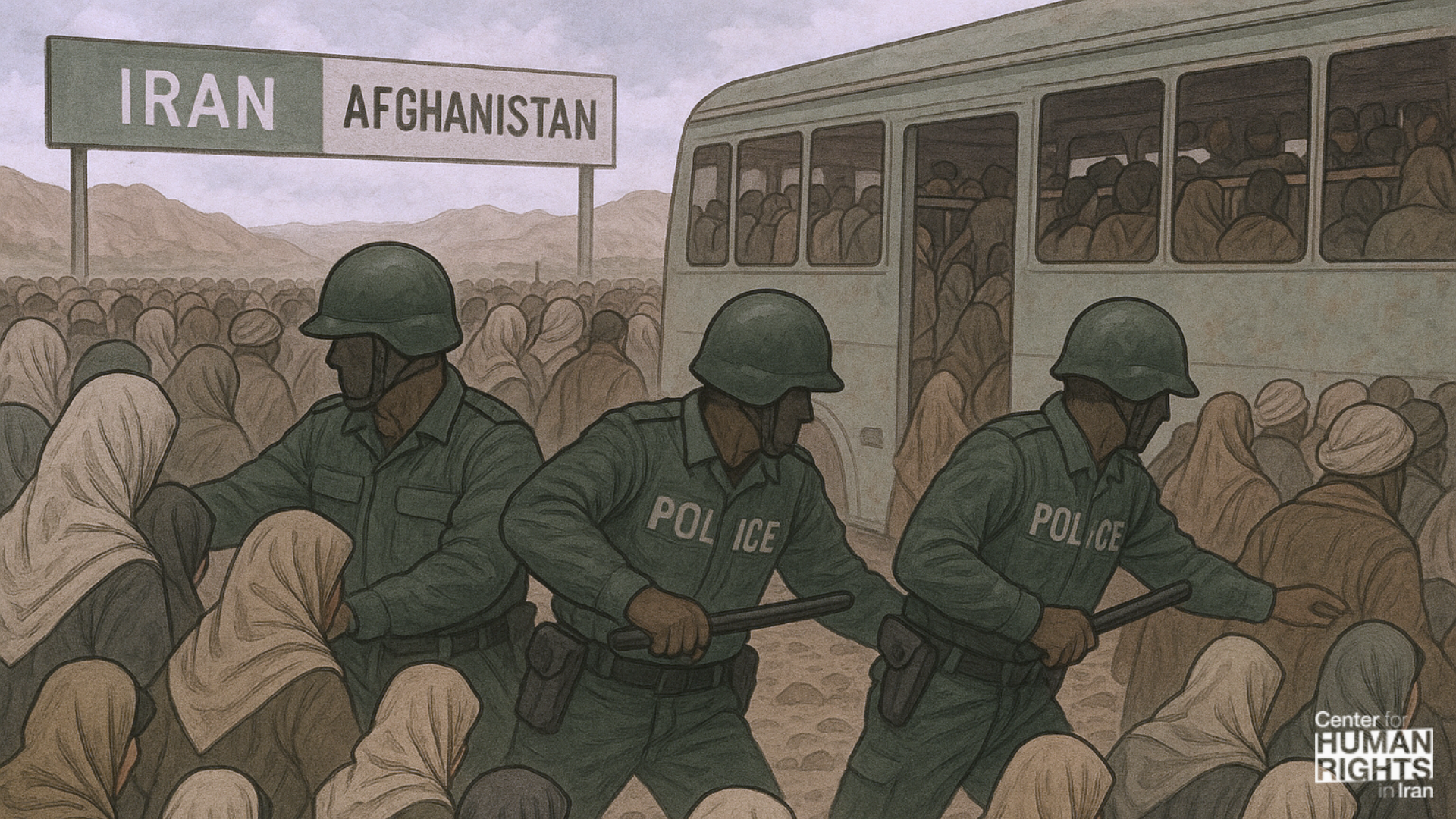
Arrests and Deportations Follow Baseless Charges of Spying for Israel
State Media Inciting Violence by Labeling Afghans and Other Minorities as Traitors
July 9, 2025 — The Iranian government has initiated one of the largest mass deportation campaigns in its modern history, forcibly returning hundreds of thousands of Afghan migrants following the recent war with Israel. Using the post-war climate, authorities have cast suspicion on Afghan migrants—accusing them of espionage and branding them as potential spies for Israel—fueling longstanding discrimination against the Afghan community in Iran and exposing them to heightened violence.
More than 1 million Afghan migrants have been deported from Iran since the beginning of 2025, with nearly 600,000 returned since June 1. At least 70% of these individuals were forcibly removed. Alarmingly, children make up approximately 25% of those deported.
“Iran is casting out entire communities—men, women, and children—based on prejudice and politics, to a country where their lives and most basic rights are under immediate threat,” said Esfandiar Aban, senior researcher at the Center for Human Rights in Iran (CHRI). “These deportations are an egregious violation of international law. All migrants and refugees, regardless of documentation status, have the right to due process and protection against forced return to danger.”
“For most Afghans, deportation is not a return home—it is a descent into crisis, into a country ravaged by war and repression,” Aban continued. “For Afghan women and girls, it’s even worse. They are being sent back to a regime that has erased them from public life. This is not just a deportation—this is a death sentence for their freedom, their education, their futures.”
Iranian officials have used the war to justify a sweeping crackdown, arresting Afghan migrants and other minorities on baseless charges of spying for Israel and accelerating deportations. There have also been reports of state-affiliated media inciting discrimination and violence by labeling Afghans and other minorities as traitors and using dehumanizing language to vilify them.
“What we are witnessing is not just a refugee crisis,” Aban said. “It’s a systematic campaign of scapegoating and collective punishment—an attempt to erase an entire population by blaming them for the failures and fears of the state.”
CHRI urgently notes that deporting over 1 million people in this short period raises numerous and grave red flags. Mass deportations without individualized review or access to legal remedies violate due process protections under international human rights law. This practice amounts to collective expulsion, which is prohibited under Article 13 of the International Covenant on Civil and Political Rights, to which Iran is a State Party.
In addition, the forced return of Afghan migrants, particularly women, children, and long-term residents, constitutes a clear violation of the non-refoulement principle. As a cornerstone of both customary and treaty-based international law, this principle prohibits states from returning individuals to a country where they face a real risk of torture, persecution, or serious human rights violations.
Saeid Dehghan, a prominent Iranian human rights lawyer and director of the Parsi Law Collective, stressed, “Given the scale, violence, and systemic nature of these deportations — particularly if combined with beatings, property confiscation, and arbitrary detention — there may be grounds to consider them as potential crimes against humanity.”
CHRI calls on the Iranian authorities to immediately:
- Comply with their responsibility to identify and protect individuals seeking asylum.
- Stop the indiscriminate deportation of Afghans and ensure proper screening and due process.
- Prohibit inflammatory press reports concerning Afghans and other minorities.
- End the unlawful arrests, destruction of Afghans’ documents, and confiscation of homes.
CHRI calls on the UN, governments, and humanitarian agencies worldwide to demand that the Iranian authorities immediately:
- Cease forcibly returning Afghan nationals to a country where they face serious threats to their lives and fundamental rights under the Taliban regime.
- Increase emergency funding to UNHCR responding to Afghan refugee needs, both inside Afghanistan and at border areas.
Afghans Legally in Iran Being Deported, Officials Destroying their Documentation
The wave of deportations follows a July 6 deadline imposed by the Iranian government for all undocumented Afghans to return themselves or be deported. Afghan communities across Iran have since reported increased harassment, arrests, and evictions. There are reports that even those with documents are being arrested and some have said their documents were torn apart by Iranian officials.
Iran’s border police have also announced that homes rented to Afghan nationals will be confiscated and sealed. Daily returns increased significantly after the Israel-Iran war, with the highest number recorded on 1 July, when over 43,000 people returned—eight times the average daily return rate earlier this year.
The UN Refugee Agency (UNHCR) has raised alarm over the growing humanitarian crisis facing Afghan returnees, emphasizing that many of these returns are not voluntary. The agency stated that it is severely underfunded and may soon be forced to halt its operations.
Testimony: “I know many people who were deported even though they had visas.”
Dawood, an Afghan citizen who has lived in Iran for years with his family and is a graduate of a well-known Iranian university, told CHRI:
“I know many people who were deported even though they had visas and identification documents. No one is held accountable. I even know of someone who, after showing their visa and passport to officers, had their documents torn up right in front of them.
“The situation is horrific. I know many people who were treated extremely violently by the authorities. Even elderly people and women were beaten.
“Unfortunately, a major part of the hostility against Afghans comes from the very policies promoted by the government, encouraging Iranian citizens to mistreat Afghan nationals. Just look at this new order: even people who rent homes to Afghans are being threatened.
“It’s not just about deportation. The real question is—what awaits them once they cross the border?”
Testimony: “The Islamic Republic wants to blame Afghan migrants for the country’s crises.”
Danial, a 48-year-old Afghan, who has lived in Iran for 30 years and works in the healthcare industry, told CHRI:
“The pressures on migrants started building this past spring. Whenever we went to government offices, the treatment was dehumanizing. But it wasn’t just government offices. A few days ago, my 70-year-old mother’s SIM card was cut. We visited a private telecom company (Irancell) to obtain a new one. Despite the empty office, seats, and air conditioning, they kept us waiting in the sun for three hours. When I complained, the guard snapped at me and said, ‘You people have gotten too bold. You don’t even deserve to have SIM cards.’
“I’ve been working in healthcare since I graduated from university 12 years ago. I never had issues until the new administration came to power. Then suddenly, a wave of anti-Afghan content flooded social media. Over time, even my colleagues at the clinic changed their behavior toward me. I started receiving calls from the Medical Council asking about my residency status. In February, they summoned me and revoked my license to work in clinics.
“Later, a friend let me work at her private clinic, but within a month, the authorities found out and I had to leave. I had been doing part-time work, but now with the crackdown on employers who hire Afghans, I can’t find work anywhere.
“I’ve lived in Iran for over 30 years. I earned a degree from one of its top universities and published academic papers in reputable journals. But none of that matters.
“I have wonderful Iranian friends who’ve shared my life. I see how repressed and exhausted Iranian society is. The Islamic Republic wants to offload this widespread public anger onto Afghan migrants, blaming them for the country’s crises.”
“The treatment is what you’d expect for criminals.”
“Another major worry since the new deportation order is housing. I know many people who were forced to leave their homes on short notice. In February, my mother and I signed a one-year rental contract. Just a few days ago, the landlord told us we either had to leave by next month or pay an extra 18 million tomans. In this collapsing economy, when I can’t even work, how can we afford that?
“At the border, I’ve heard reports that Iranian officers treat deportees with incredible violence. Many weren’t even allowed to take small amounts of cash with them. The treatment is what you’d expect for criminals.”
“Many children stopped going outside out of fear of arrest.”
“There are many Afghan families with young children in my area. After the government announced this expulsion policy, many children stopped going outside out of fear of arrest. My brother’s kids won’t go visit their grandmother, even though we live nearby. This fear of simply being seen—combined with the hateful, anti-migrant atmosphere on social media—is severely traumatizing Afghan children.”
Testimony: “Tehran is full of checkpoints and police who are just waiting to catch Afghans.”
CHRI recently spoke with a young Afghan man who was born in Qom, Iran. His parents had moved to Iran due to threats to their lives in Afghanistan for their peaceful political activities.
“My biggest fear these days is getting arrested. Now, if police arrest an Afghan, whether they have documentation or not, there’s a 99% chance they’ll be deported. Right now, I’m moving around my own city in fear and anxiety. I wanted to visit Tehran to see some friends but my Afghan friends in Tehran told me not to come at all. If you do, they said, you’ll get stopped on the way or in Tehran itself, where the city is full of checkpoints and police who are just waiting to catch Afghans.
Even though they can’t easily tell my nationality just by my appearance, it’s still too dangerous. I can’t take the risk of being deported to a country I know nothing about and where I have no one. It’s incredibly difficult.”
“It’s mostly the single men who are beaten.”
“When an Afghan is arrested, they have to deal with many officers—from the one who arrests them in the city, to those in the deportation camps, to the border guards. And none of them treat you kindly.
“From what I’ve heard from my relatives, they beat people—often in different ways. It’s mostly the single men who are beaten. If someone is with their wife, maybe the officers don’t bother them. But the single men—they get beaten.
“My aunt told me that in one of the camps, they divided the men and boys into two groups and had them stand facing each other. The guards told them, ‘You have to hit each other. If you don’t, we’ll beat you ourselves.’ They said, ‘If you don’t hit the person in front of you, we’ll drag you out and punish you.’
“My sister was once in a camp with her family. She said they threw the men into the middle of the camp yard, and the officers started kicking and beating them with batons. At that time, my sister had a six-year-old child and a newborn baby. She was left in the middle of the camp yard without shelter, and no one gave them anything—not even a blanket. Eventually, someone gave her a dirty sack to keep the baby warm.
“Now they’re tearing up people’s passports. These passports cost money. And if someone is being deported to Afghanistan, having a passport could at least allow them to go somewhere else, like Pakistan, or apply for immigration elsewhere. But the border guards rip them up. So, when the person arrives back in Afghanistan and wants to travel elsewhere again, they must go through the entire bureaucratic process of obtaining a new passport from scratch, paying for it all over again.”
“This fascist trend will gradually expand to the suppression of other minorities.”
“In the end, we’re going to be forced to leave. Either we leave on our own, or we’re thrown out. But this fascist trend that has been growing in Iran for years, and intensifies in moments like this, doesn’t just target us. It gradually expands to the suppression of other minorities—like the Baha’is, and ethnic groups like the Kurds, Baluchis, Arabs, Turks… It keeps shrinking the homeland of Iran. It keeps building new groups to label as ‘others’ and then suppresses them.
“The Iranians, if they stand up to this fascism today, even though it’s already very late, they will be saving themselves and their own society.”
Mass Deportations Are Direct and Egregious Violations of International Law
The forced deportation of hundreds of thousands of Afghans, not only amounts to collective expulsions that violate Article 13 of the ICCPR, and violates the principle non-refoulement, since the Afghans are being forced to return to a country where they will face grave rights violations, they also constitute grave breaches of other international laws and treaties.
Dehghan talked with CHRI about the ongoing rights abuses against Afghan migrants in Iran, the current mass deportations, and the severe violations of international law underway in Iran now.
Criminalization and Vilification of Minorities: Dehghan noted, that “the framing of Afghan migrants as ‘Israeli spies,’ combined with hate-inciting rhetoric in state-affiliated media, clearly constitutes incitement to racial discrimination and violence. This is prohibited under Article 20 of the ICCPR and is thus a clear legal violation and abrogation of Iran’s responsibility under international law.”
Statelessness and Denial of Basic Rights: The human rights lawyer added: “Iran’s decades-long refusal to regularize Afghan migrants, including denial of access to civil registration, banking services, and education, has effectively rendered many of them stateless. This violates multiple international conventions and facilitates systematic rights deprivation.”
Risk of Crimes Against Humanity: “Given the scale, violence, and systemic nature of these deportations, there may be grounds to consider them as potential crimes against humanity,” Dehghan said.
Return to Taliban-Ruled Afghanistan is a Human Rights Crisis
Afghan migrants and refugees in Iran, including many born and raised there, face entrenched legal discrimination. They are denied pathways to citizenship, barred from opening bank accounts or renting homes in many areas, and restricted to low-paying, dangerous jobs. They have limited legal avenues to claim refugee or other immigration status to obtain documentation. As a result, they are often helpless in the face of these mass deportations.
Moreover, Afghans are being returned to Taliban-ruled Afghanistan, a country in the grip of multiple overlapping crises. Returnees face the constant threat of arbitrary arrest, harassment by Taliban authorities, and severe repression, especially for women and girls. With little to no access to food, shelter, or basic services, many returnees are arriving in areas already overwhelmed by poverty and displacement.
The situation is particularly dire for unaccompanied children and single women, who must be accompanied by a male guardian while traveling. The Taliban’s gender apartheid policies for women and girls mean that deported Afghan women will be stripped of their rights to work, move freely, or access education and healthcare.
An Afghan mother recently returned with her newborn was denied food and shelter. “They told me: ‘You’re not eligible. You don’t have a man with you.’ But my baby is just four days old. Where am I supposed to go?”
This report was made possible by donations from readers like you. Help us continue our mission by making a tax-deductible donation.

